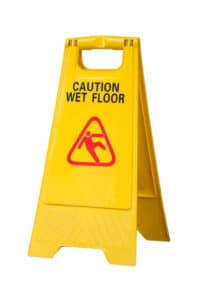If you believe you have a legal claim against someone, the first step should be not going to court to resolve it. Going to court can be a very stressful and expensive process, taking a lot of time and money. On average, it takes more than a year to receive a trial decision in small claims court, and dealing with the Supreme Court takes even longer. It is always better to settle the dispute out of court to make it easier for both sides to save time and money. A settlement is an agreement between both parties in a lawsuit that effectively halts the dispute process and any other future lawsuit. In other words, it is known as a compromise settlement, which is substituted for the claim by the injured party, and the rights and liabilities of the two parties are then set by the agreement.
Pros and Cons of Settling Out of Court
Going to a trial, whether you are the plaintiff or the defendant, can be very stressful, and settling before the trial may be the best option to save time and money. There are many advantages to settling a dispute out of court, such as:
- Lower court costs and attorney fees.
- Quicker resolution and certain outcomes.
- Less stress and time away from work.
However, there may be benefits to settling a trial in court, such as:
- Could be difficult to get the claim paid.
- Claim amount may be more in court.
- If there is no agreement, it is back to court.
How to Settle Out of Court
The best first step of any lawsuit is trying to work out the agreement out of court. Even the courts agree with this, as it saves time and money for both parties. There are three general paths to be taken in order to resolve a case out of court. First, the best way to settle an agreement is to have a face-to-face conversation about the dispute. There are some instances where the adversary is not aware of the problem or acknowledging their responsibility within the case. People dealing with out of court settlements may not realize how reasonable the adversary is, as they don’t want to have to spend money hiring a lawyer and dealing with a case in court. If there is an agreement that was settled upon, it is important that there is a written document stating the resolution, signed by both parties. Additionally, it is smart to have a lawyer present and to create the document so there aren’t any legal holes in the document.
If you have tried negotiating with your adversary and it didn’t work out, you should consider mediation. Mediation is where you and the adversary meet with a third party and come together to find a resolution. The third party, or the mediator, has no say in the case, but offers a solution that works best for both parties. In some courts, a mediation is required before a case can even be presented in court. If both parties come to a solution, there will be a written mediation agreement that states the intentions for both parties and is signed by the mediator.
Lastly, another way to resolve a dispute is arbitration, which is similar to mediation. The difference between an arbitration and a mediation is that the third party, or the arbitrator, makes the legally binding decision in the case. This makes it so the ultimate decision is based on the arbitrator, though the judge can overturn it in court. Arbitration is recommended for cases involving money, rather than a problem between you and your neighbor.
If none of these resolutions work, then it is best to find an aggressive lawyer who will fight by your side. Although it may cost more money and time, this is your best option if you cannot settle your dispute out of court. If you can settle out of court due to mediation or arbitration, it is still recommended to hire a lawyer to be a witness to the resolution. Here at Richard Harris Law Firm, our lawyers have years of experience dealing with out of court settlements and know the laws better than anyone else. If you or a loved one is dealing with an out of court settlement, reach out to us for help on better understanding the case and determine if a lawyer is needed.





























